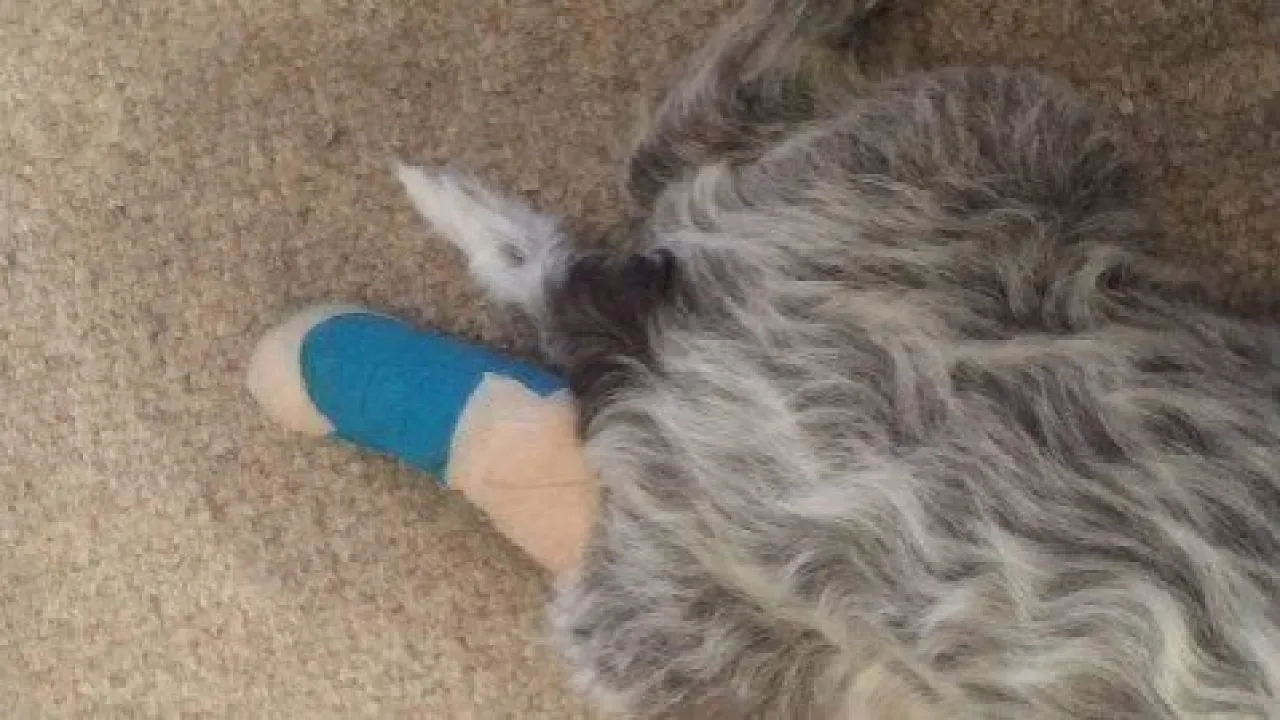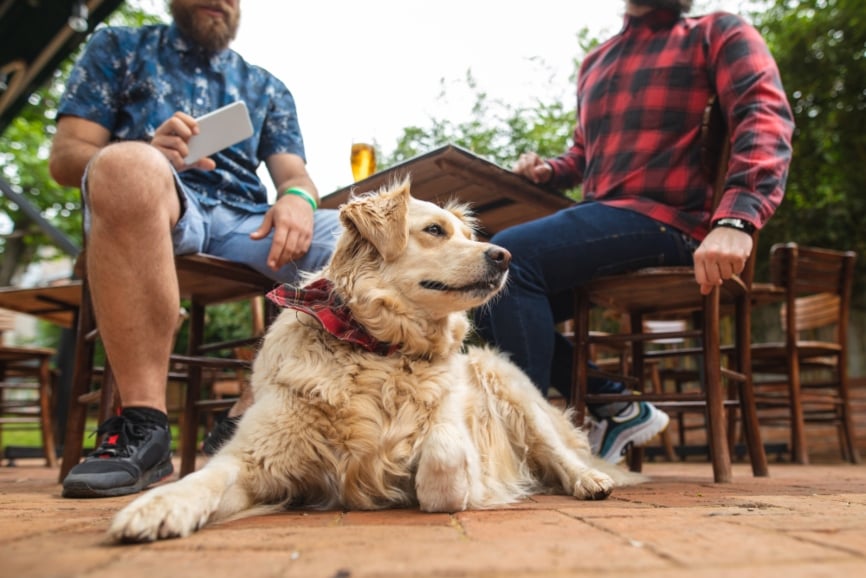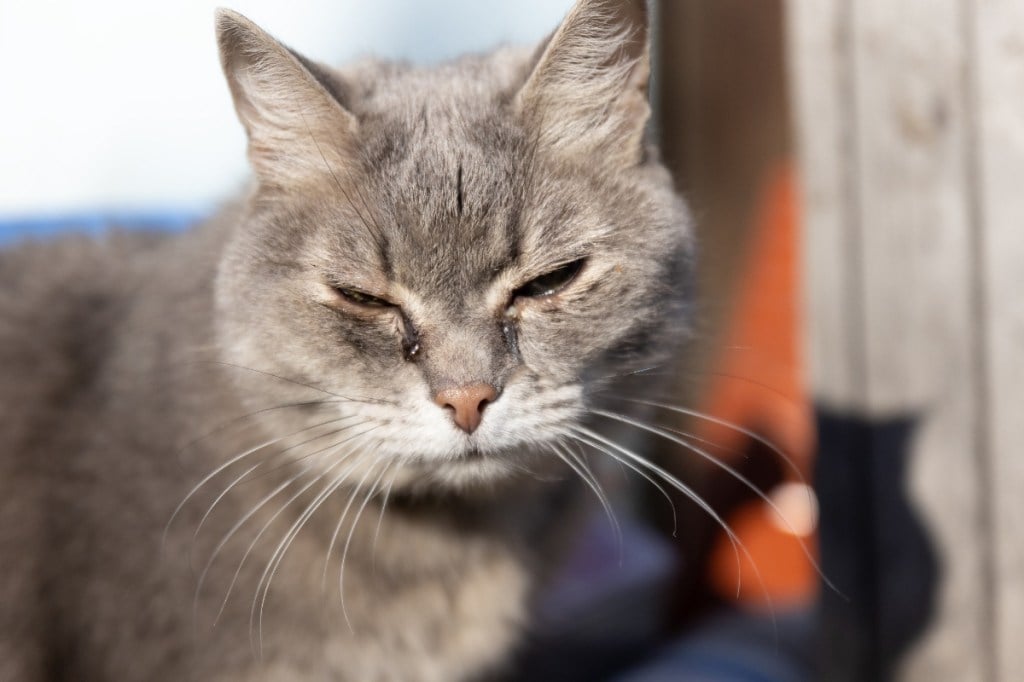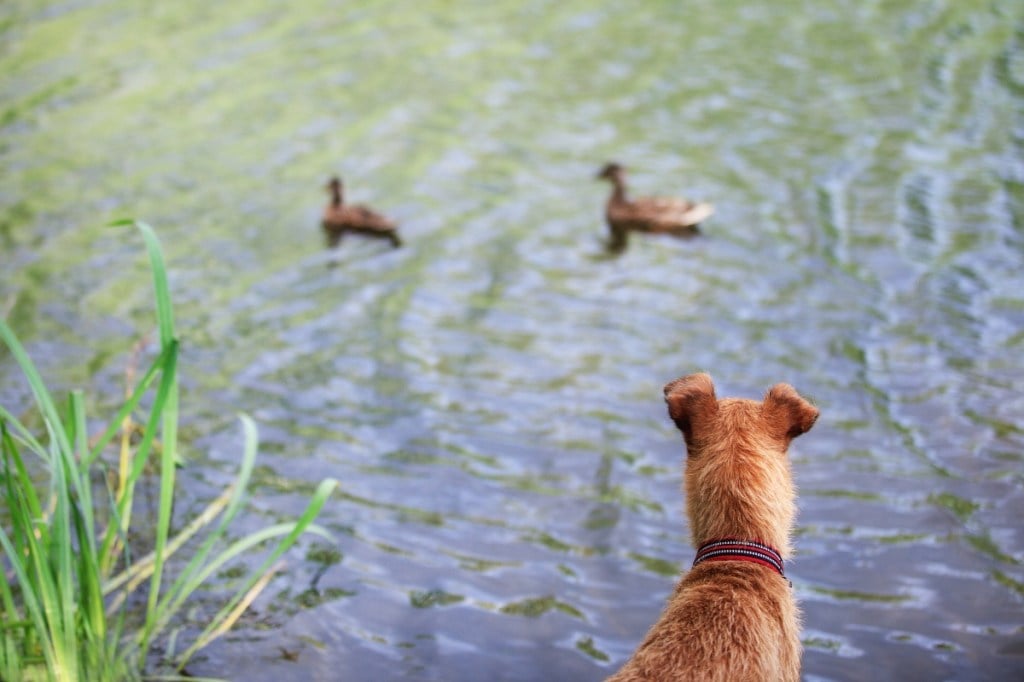Key Takeaways
- At-home care makes up about half of the rehabilitation process after an injury.
- Keep the cast and injury area clean and dry.
- Check for good circulation, and don’t trim the cast as the injury heals.
- You may need to us a cone around the neck or cover the cast with a plastic bag to protect it when outside.
- Consider hiring a pet sitter to make sure your pet doesn’t destroy the cast while you are away.
Table of Contents
Seeing your sweet fur ball sporting a tiny cast or splint can have you oscillating between feelings of “My poor baby!” and “Geez, she’s so cute!”. The good news is that you’ve successfully taken your pet to the vet, addressed the issue (most likely a broken or fractured bone) and your pet is on his/her way toward a smooth recovery.
At-home care provided by you the owner, accounts for roughly 50% of rehabilitation. It’s officially your job to keep the area clean and dry, and to prevent any mishaps while nursing your cast-encumbered cat or dog back to pristine health.
How to Keep a Pet Cast or Splint Clean
Adhere to your vet’s advice for how to properly take care of the cast or splint. We also recommend calling your vet throughout the recovery with any questions you may have. Each animal, wound and cast is different, so a personalized approach to care is key for a successful recovery. That said, there are some steadfast rules that apply to any situation.
- Keep the Area Dry: Don’t allow your pet to walk through puddles, lick the area or book a grooming appointment (and no at-home baths!). Though the cast is water resistant, it isn’t waterproof so large amounts of water can cause damage. The cast and surrounding area should be dry at all times, as wet casts are a breeding ground for bacteria and infections.
- Gently Clean if Necessary: If absolutely necessary, use a slightly damp, sudsy washcloth to clean the exterior of the cast.
- Don’t Trim: It may be tempting to alleviate discomfort by trimming the cast, but your vet made it that size for a reason! If you see a rough or sharp edge, you can use a nail file to soften.
- Don’t Stuff or Poke: Don’t put anything into the cast, including cotton balls, your fingers, a scratching stick, or otherwise. Sharp objects could damage the wound, and stuffing it could make it too tight and cut off circulation.
- Check Circulation: Periodically check your pet’s toes to make sure they’ve got good circulation. If their toes are cold, consult your vet ASAP.
- Do a Sniff Test: Yep, it has come to this. A foul scent is one of the biggest indicators that there’s an infection brewing. Call the vet immediately if the cast begins to smell.
How to Prevent Your Pet from Destroying the Cast
Though you’ve done your part in keeping the cast clean and dry, your dear pet may have other plans for this uncomfortable and annoying treatment! You know how it is when you have an awful itch and all you want to do is scratch away? Your pet no doubt feels the same way, only they don’t realize just how much damage their scratching can do.
You’ll need to employ a few tricks to keep your pet from biting, scratching and licking the area, especially in the first few days since they’ll be particularly bothered and confused by its presence.
- Whip Out the Cone: It’s all fun and games until one has to wear the cone of shame! But seriously, a cone prevents your pet from licking, chewing or biting the wound, thereby keeping the cast intact and the wound protected.
- Place a Plastic Bag Over the Cast When Outside: This will keep the area clean, dry and protected from the elements. Remove the plastic bag when you’re back inside.
- Cover Other Feet: If your pet has a habit of scratching, place a thick sock over the other feet and secure gently. Your pet will not be amused by this at all, but it’s for the best!
- Book a Sitter: If you have the means, booking a pet sitter while you’re away can alleviate some worry that your pet will gnaw off the cast as soon as you’re gone. We love Rover.com for keeping it local, and because it’s so easy to use.
Again, don’t hesitate to call your vet if you have any questions or concerns. They will be able to assist you while your sweet ball of fluff is on the road to recovery.
The content is not intended to be a substitute for professional veterinarian advice, diagnosis, or treatment. Always seek the advice of your veterinarian or other qualified health provider with any questions you may have regarding a medical diagnosis, condition, or treatment options.
Fortunately, if you have a pet insurance plan like Healthy Paws, you could be reimbursed for up to 90% of your vet bills for unexpected accidents like fractures. If you’re not already part of our pack, get started today with a free quote.







